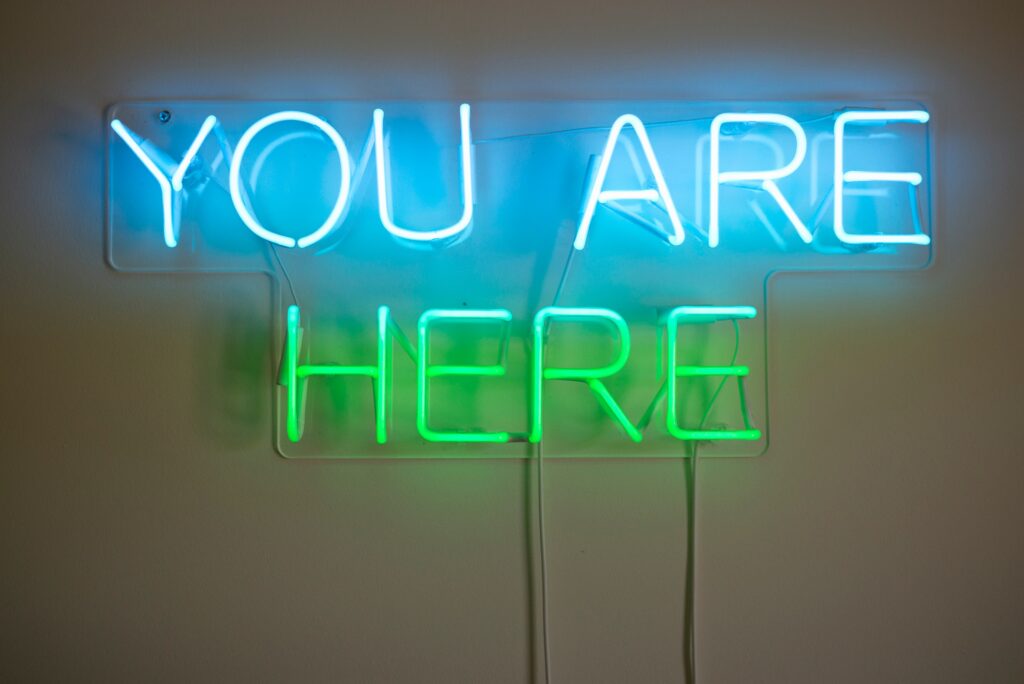Ralph Waldo Emerson said that “fear defeats more people than any other one thing in the world.”
Right now, fear is kind of everywhere.
Some fears are healthy; they keep us alive. Wearing a mask and social distancing during a pandemic is the smart and caring thing to do.
Other fears are toxic and if left unchecked, can set up residence in our minds and bodies, affecting how we think and what we do, or not do.
Toxic fear tells us, “you can’t, you shouldn’t, it’s too risky, don’t even try.” Toxic fear holds us back from pursuing the life we want and making the impact we desire.
Many of us make the mistake of trying to get rid of fear because we don’t like the feeling. But, this doesn’t work and only fuels anxiety. We start worrying about worrying so we get stuck.
Instead, our goal should be to free ourselves from the control of fear rather than avoiding it. This takes courage, which is the ability to move forward despite the presence of fear.
Living courageously involves shifting our focus away from removing fear, to pursuing a rich and meaningful life alongside fear.
Here is how you do it:
Connect With Your Values
Start by affirming what is most important to you and who you want to be as a person.
These are your values – those fundamental commitments that give meaning and purpose to your life. Values might include, love, togetherness, competition, commitment, and so forth.

The word “values,” sometimes called “core values,” is talked about quite a bit. I’m often asked, “How do I know if something I believe is a value?”
Here’s a good rule of thumb:
Values are enduring and expansive.
Unlike goals that come and go, values are never “achieved” or “completed.” They are much more permanent and akin to an internal compass that guides you on how to act in any situation.
For example, if compassion is one of your values, you’ll attempt to show consideration to everyone you interact with, regardless of relationship, status, or circumstance.
You won’t always do it and the care you show a family member may look different than what you extend to a colleague. But deep inside, your concern for others will always be there, waiting for the moment to manifest itself.
That’s how you know it’s a value.
Unfortunately, fear can cause us to neglect our values (or we let others define them for us) because living authentically often comes with a cost. For instance, if one of your values is “honesty,” you’re natural desire is to share your concerns with your partner, but worrying that it might lead to conflict, you stay silent.
Living in harmony with our values is itself a courageous act. The word courage comes from the Latin term cor, which means “heart,” or, the center of who we are.
The great Sufi poet, Rumi, tells us that, “…every success depends upon focusing the heart.”
I like to think this includes understanding what is most important to us and who we want to.
So, back to the “honesty” example above. Fear of conflict will lead you away from being honest. Yet, you also value compassion and connection with your partner. As you enter into the conversation, being mindful of your values rather than reactionary to the situation, allows you to honor all of your values simultaneously.
I call this, leading from the heart, which is simply making intentional choices that reflect our core commitments.
Once we choose to live this way, something extraordinary happens – A world of possibility opens up and we gain the courage to say no to fear and yes to life.
When you live your values, life should be energizing, not depleting, satisfying, not drudgery, and meaningful, not meaningless. Your impact and performance will be greater as well because you are excited to be doing something that is deeply meaningful to you.
With all the uncertainly and disruption in the world, it’s more important than ever to know what is most important to us and live in a way that supports those values.
Do you know your values, and perhaps more importantly, are you living them?
If you feel like you need help defining your values this list of 400 value words is a great place to get started. Write them down. Reflect on them and seek ways to live them out in your daily life.
Visualize Success
Fear is powerful because it lives in our imagination.

It causes us to imagine only the worst possible outcome. We create stories like, “If I ask my boss for a raise, she’ll say no and I’ll feel foolish,” or, “I really want to start my own business, but I’m not smart enough so I’m sure I’ll fail.”
So the challenge we face is this – in order to act, courage calls us to envision a positive future, where we are successful in our quest.
We need to learn how to flip our negative script to one that is positive and effective.
This is where visualization comes in, which is simply a technique for creating a positive, mental image of a future event.
When we visualize our desired outcome, we begin to see the possibility of achieving it. Through visualization, we catch a glimpse of what is, in the words of one writer, our “preferred future.” When this happens, we are motivated and prepared to pursue our goal. – Frank Niles Ph.D.
From athletes to corporate executives, people use visualization to achieve their goals or gain a competitive advantage.
If you want to learn more about the science behind visualization and how to use it to achieve your goals, I suggest you begin by reading my article on process and outcome-based visualization, as well as, Josh Molnar’s terrific post on mental imagery. These will get you started seeing the future you want.
Embrace Now
Once you have decided on a course of action, shift your attention to the present moment.
As Eckhart Tolle reminds us, “The only thing that is ultimately real about your journey is the step you are taking at this moment. That’s all there ever is.”

This may seem antithetical to visualization but it’s not. Like visualization, present awareness is an intentional act, not a reactive one. Both involve conscious choice.
This is the essence of the ancient and increasingly popular practice of mindfulness, which in the words of John Kabat-Zinn is “paying attention in a particular way; on purpose, in the present moment, and nonjudgmentally.”
I love these ideas:
On purpose means taking intentional action anchored to our values.
In the present means opening up to the current reality, not worrying about the future or ruminating about the past.
Nonjudgmentally means approaching people and circumstances with openness and curiosity, rather than reactivity and evaluation.
When we live mindfully something extraordinary happens. Anxiety finds little room to set up residence and we become aware of possibilities that would otherwise be missed if we continued worrying about the future.
In this way, living in the present actually prepares us for the future, and when combined with visualization (also an intentional act), substantially increasing the likelihood we will achieve our goals.
Living fully present is a simple yet challenging practice. It’s counter to our wake up, check email, drive to work while eating breakfast, see how many things I can get done today culture. Mindfulness requires intentional, daily cultivation.
If you are just starting out, there are lots of good books and apps you can use. Choose one that works for you, and just be sure to set a realistic daily goal for your practice. I suggest starting with 10 minutes.
And remember, the goal of a mindfulness exercise is not to empty your mind but rather to bring your awareness back to your breath (or object) as thoughts and feelings arise. It’s about improving your focus and being anchored in the present.
Be Kind To Yourself
Fear makes us feel scared. When this happens, show compassion to yourself. Acknowledge that being scared just means you’re a human being with emotions. It’s ok to be scared.

Don’t judge your feelings as either “good” or “bad.” They are just thoughts that may or may not be true. Using your mindfulness training, recognize your fearful thoughts for what they are – just thoughts – then, release them, and refocus your attention on what matters most to you. Repeat this process as often as you need because you’ll notice fear is often a lifelong companion.
Fear occasionally gets the best of us. When this happens, remember that failing is normal too. But failing doesn’t mean you are a failure. Again, it just means you’re human; we all miss the mark sometimes.
Let failure refine rather than define you, seeing it is an opportunity to learn and become better at what you do.
As a rock climber of over 30 years, I’ve had to learn this lesson. On difficult climbs, it’s common to fall many times before reaching the top successfully without falling.
When I started climbing three decades ago, I would get discouraged each time I fell and tell myself, “I shouldn’t even be doing this.”
Over the years, I’ve learned to use each fall as an opportunity to refine my technique so I can achieve my goal — the summit! Sometimes I make it; sometimes I don’t. And I can still feel discouraged. However, this approach keeps me motivated and moving rather than giving up.
This is akin to what Carol Dweck calls a “growth mindset.” Check out her TED talk to learn more.
Draw Upon Past Success
When you face a situation that triggers anxiety, yet in the past you have pushed through it, pause and remind yourself you have been here before and have succeeded.

Recite this simple mantra and watch your confidence grow: “I’ve been here, I’ve done this, and I can do it now.”
I use this technique with executives who, despite having delivered hundreds of speeches, remain terrified of public speaking. I remind them, “You’ve been here, you’ve done this, and you can do it now.”
Combining this recitation with visualizing the specific steps needed to succeed is incredibly effective at reducing acute anxiety and increasing performance.
Surround Yourself With Compassionate People
When worry washes over you, invite caring people into your life. One of my yogi friends says it best, “When you are in a bind, open your heart.”

It may feel risky, but it’s necessary. A compassionate family member, friend, coach or therapist provides the support and perspective you need to persevere during difficult times. Sometimes, just having someone listen to you helps immeasurably.
Make an effort to spend time with these people. Being around people who care about you as a person is one of the best ways to reduce anxiety and get moving again.
Just be sure to avoid energy vampires – those people who prey upon our anxieties, tell us no, and leave us feeling worse off.
Surround yourself with people who are honest (this is not the time for toxic positivity) but also build you up, not tear you down.
Some fears we outgrow or learn to overcome. Others stay with us for life. By following the steps above you can begin cultivating the courage you need to live a full and meaningful life alongside fear.
Drop a comment below and let us know how you are living courageously.
All images courtesy of Unsplash.


